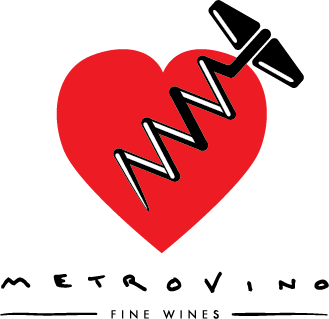BY Al Drinkle
Alcohol, and therefore wine, is under attack from seemingly all sides. Most pertinently, categorical warnings issued by the World Health Organization and US Dietary Guidelines (the former based in part by “research” and support by Canadian neo-prohibitionists and the latter by the ICCPUD, a group tasked with the prevention of underage drinking) state that “no amount of alcohol is safe for human consumption”. That's quite an assertion.
Instead of fumbling my way through a defense from a physiological standpoint, I would like to refer you to two sources. The first is a website set up by Dr. Laura Catena, a physician and Argentine winery owner. She's posted several articles that argue for alcohol's supposed deleterious effects on human health, along with her own erudite responses. I assume that as the battle rages on, she will continue to remain active in this capacity. (As an aside, I love the title of an article that she's included that was published by Harvard Public health — namely, “Is Alcohol Good or Bad for You? Yes.”)
The second is an article of my own, but the point is to once again refer you to Edward Slingerland's excellent book, Drunk: How We Sipped, Danced and Stumbled Our Way to Civilization. There's also a link to a lecture-version on YouTube if you're intimidated by the size of the book.
What I would personally like to add here are a few points that haven't played as significant a role in the conversation as I think that they ought to. The first is a major flaw in the WHO's argument against drinking that seems to perpetuate their entire agenda. Namely, this is the fact that any compelling arguments against drinking, and from here on I'll be assuming that we're addressing wine specifically, stem from the erroneous assumption that people drink because they mistakenly assume that doing so is physiologically healthful.
If I may paraphrase the WHO's thesis, it might unfold as follows: You drink wine because you think that it's physiologically healthy, but our research shows that it's actually not, therefore you have no reason to drink wine and every reason to abstain from it. Woah… hold on a minute! Who amongst us primarily drinks wine because they think it's physiologically healthy?!? I take vitamins for this reason, and it's also the sole catalyst for why I go for runs and let medical practitioners probe my various orifices. But it's not the reason that I drink wine.
The boundlessly important variable of mental health is almost never addressed as this research unfolds. If the jury remains out on whether wine is physiologically harmful to me, speaking personally there's no denying that wine is a significant benefit to my mental health. Sure, this has something to do with what Hugh Johnson has famously referred to as its “sorrow-banishing” capacities, but to a much greater extent it involves the complex and rewarding nexus of a natural product that tastes delicious and incorporates many disparate and fascinating disciplines and pursuits. Wine can be chemically stimulating, but its intellectual, cultural and emotional rewards are literally beyond measure.
Finally, I can't help thinking that alcohol is being picked on unfairly. After all, what isn't a health risk in a world where we've poisoned the air we breathe and the water that we drink? Driving or riding in motor vehicles, for example, is an exceedingly dangerous activity that most of us engage with on a daily basis. We even subject our children and other loved ones to it! Swimming comes with many risks, as does eating deep-fried foods, exposing one's self to the sun or having sex. I plan on going for a walk after I write this, thereby running the risk of spraining my ankle or being run down by an inattentive motorist. Sir David Spiegelhalter, Emeritus Professor of Statistics in the Centre for Mathematical Sciences at the University of Cambridge even goes on record to dismiss what he calls, “the pointless obsession with the possible overall risks of low levels of alcohol… there are risks in everything that we do.” (Italics are my own).
As I've written many times before, imbibing wine is a very personal choice, and I respect and support anybody's decision or need to forgo it. But if your reasons for abstaining from a beautiful, natural product that probably makes you happy and enriches your day have been catalysed by the proliferation of warnings issued by enterprises with ulterior motives, I urge you to engage with the various sides of the story before making up your mind.

